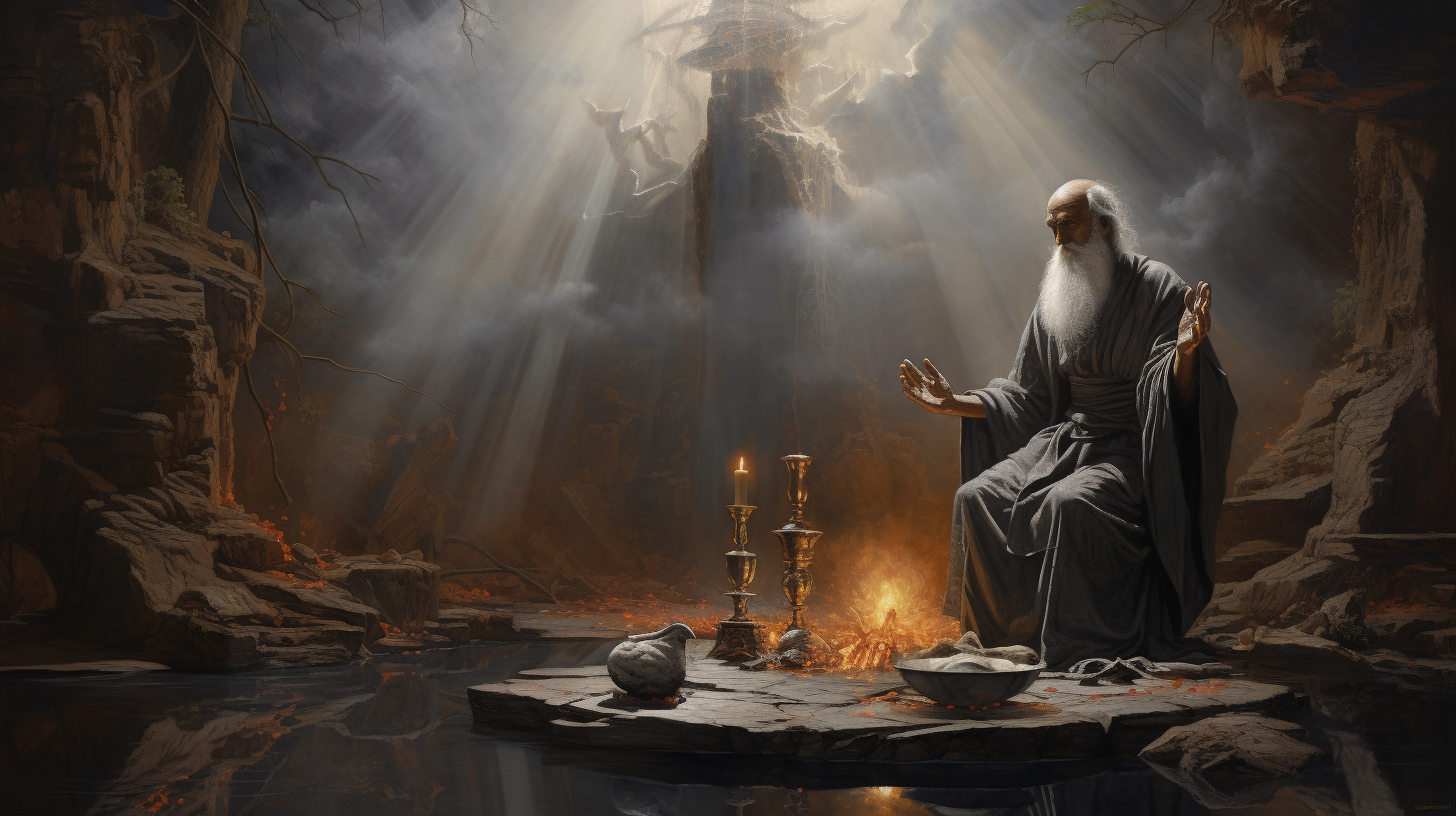What Does Ontological Shock Mean?
Ontological shock refers to a profound cognitive and existential jolt experienced upon encountering phenomena that drastically challenge existing worldviews, often triggered by paradigm shifts, life-altering events, or exposure to radically different cultures or technologies.
- Have you ever experienced a moment that fundamentally challenged your understanding of reality?
- How do encounters with the unknown or unexpected lead to profound changes in our belief systems?
- What are some examples of situations or events that might trigger this deep, existential jolt?
Imagine encountering something so utterly perplexing that it forces us to rethink everything we’ve ever believed. That’s ontological shock – a mental jolt that disrupts our sense of what’s possible, often triggered by phenomena that defy conventional explanation, such as a UAP sighting or alien encounter.
Definition of Ontological Shock
Ontology and Its Meaning
Ontology is a fundamental branch of philosophy that focuses on the nature and organization of being. It deals with questions concerning what entities exist and how such entities may be grouped, related within a hierarchy, and subdivided according to similarities and differences. Concepts of ontology help us frame our perception of reality, constructing a scaffold on which we hang our understanding of existence. Examples of ontology in our daily lives include:
- Classification of species in biology, creating a structured relationship between living organisms.
- Conceptual frameworks in technology, where entities and their relationships are used to design databases.
- Social ontologies that define the roles, powers, and structures within social systems, shaping societal norms and behaviors.
Shock and Its Meaning
Shock in this context diverges from its medical or emotional denotations, referring instead to a profound cognitive and existential jolt. It’s a disruption so pivotal that it forces us to reevaluate our deepest beliefs about the world. This shock is more than mere surprise; it signifies a transformative event that alters the very fabric of our understanding. Instances where we might experience such shocks include:
- Discovering new scientific phenomena that challenges existing laws of nature.
- Encountering advanced technologies that seem indistinguishable from magic.
- Experiencing events that defy logical explanation, such as miraculous recoveries or unexplainable natural disasters.
These shocks can compel us to reconsider our previously held convictions and, in turn, lead to significant shifts in our worldviews.
Factors Causing Ontological Shock
Paradigm Shifts
When our foundational frameworks for understanding the nature of reality are altered, it’s more than just a simple change; it encompasses a complete overhaul of established thought. Paradigm shifts are ground-breaking developments that uproot our basic assumptions about existence, often leading to ontological shock. These shifts act as catalysts, compelling us to reconsider our long-held beliefs. Examples include:
- The discovery of quantum physics, which challenged classical Newtonian mechanics
- Technological breakthroughs that redefine human capabilities or existence, like artificial intelligence
- Radical scientific theories that contradict previous understandings, such as the multiverse concept

Life-Altering Events
Personal experiences can prompt profound questioning of our beliefs and understandings of the world. These life-altering events shatter the continuity of our personal narratives, forcing us to face a new, often unforeseen reality. These events might include:
- A near-death experience, provoking a reevaluation of life’s meaning
- Losing a loved one, profoundly affecting our concepts of life and existence
- Encountering a significant failure or success that reshapes our self-identity
- Witnessing something otherworldly such as a UFO or otherworldly being
Cultural Differences
Immersion in cultures vastly different from our own can prompt an ontological shock, as deeply ingrained cultural beliefs and values are confronted by alternative worldviews. Some instances where such shocks might occur include:
- Living abroad in a society with fundamentally different social norms
- Experiencing rituals or customs that dramatically contrast with one’s own cultural practices
- Learning a new language to the point of understanding its unique world perspective
- Confronted with complex truths or concepts that defy simple explanations
- Exposed to a fast-paced stream of technological advancements that question the relevance of our current knowledge base
- Feeling inundated by contradictory information during major world events, inciting a reevaluation of our trust in information sources
Otherworldly Encounters
UAPs and Aliens
Those who witness an otherworldly being or phenomenon, like a UAP/UFO, alien, angel, demon or other creatures said to be that of folklore, fairytales and myth, often have a profound, often unsettling shock.
- UAP (Unidentified Aerial Phenomena) and UFO (Unidentified Flying Object) sightings often contribute to ontological shock. These sightings are reported observations of unidentified objects in the sky that can’t be immediately explained.
- Alien encounters and meetings with otherworldly beings, as reported by some individuals, also fall into this category. These experiences range from visual sightings to claimed abductions or communications.

Religious Encounters
Religious encounters often involve experiences perceived as direct communication or interaction with a divine or supernatural entity. These can include visions, auditions, or a profound sense of presence.
- Visions of deities or religious figures are common in many faiths. For example, visions of the Virgin Mary in Christianity.
- Auditory experiences, like hearing a divine voice, are reported in various religious texts and personal accounts.
- Some individuals describe a deep, ineffable sense of connection with a higher power during prayer or meditation.

Beings from Folklore
Encounters with beings from folklore or myth involve experiences or sightings of creatures or entities from cultural legends.
- Folklore entities vary widely across cultures, like fairies in European traditions, djinn in Middle Eastern lore, or yokai in Japanese folklore.
- These encounters are often tied to specific locations or conditions, like haunted places, ancient forests, or during particular times (e.g., midnight).
- Such experiences are deeply rooted in the cultural context and often serve as cautionary tales or explanations for natural phenomena.

Signs and Symptoms of Ontological Shock
Feelings of Confusion and Disorientation
When we speak of ontological shock, it’s important to recognize feelings of confusion and disorientation as primary indicators. The world as we understand it is suddenly called into question, leading to a state of cognitive dissonance. This may manifest in several ways:
- A sense of being overwhelmed by information that contradicts long-held beliefs.
- Difficulty in making decisions as usual guidelines seem obsolete.
- A pervasive feeling of uncertainty about what is true or real.
These symptoms signal that our previous understanding of reality doesn’t align with new experiences or information, forcing us to navigate a landscape that no longer feels familiar.
Identity Crisis
An identity crisis often accompanies ontological shock. This crisis propels us into questioning the very core of who we believe we are. Examples include:
- Doubting our purpose or role in life.
- Feeling disconnected from previous affiliations, such as social, political, or religious groups.
- Questioning the relevance of our skills or knowledge in a drastically changed world perspective.
As we grapple with these intense personal changes, we might find ourselves at a crossroads, striving to construct a new sense of identity that is in harmony with our revised worldview.
Loss of Beliefs and Values
One of the most profound signs of ontological shock is the loss of beliefs and values that were once considered unshakable. We may experience:
- Rejection of previously accepted norms and moral codes.
- Feeling alienated from customs or traditions we once embraced.
- Finding that goals and ambitions no longer hold the same meaning or importance for us.
Such a transformation often necessitates reevaluating what we value most and deciding which parts of our belief system are still relevant as we adapt to a new reality.
Coping Strategies for Ontological Shock
Seeking Support from Others
When we’re grappling with the unsettling feelings that accompany ontological shock, finding support from others can be a crucial step in managing our experiences. Turning to trusted individuals who offer an open ear and a receptive heart can provide us with the validation and understanding we need. Here are ways we can seek support:
- Share our experiences with close friends or family members willing to listen without judgment.
- Join support groups where others have faced similar existential challenges and can relate to our feelings.
- Seek professional counseling, especially from clinicians trained to help people navigate through anomalous experiences.
- Find online communities of individuals who’ve encountered similar shifts in their worldview, to promote a sense of solidarity and shared understanding.
Engaging in Self-Reflection and Growth
As we adapt to our new understanding of reality, engaging in self-reflection allows us to process our thoughts and emotions, leading to personal growth. Here’s how we can use self-reflection for our benefit:
- Take time for personal meditation, focusing on our inner feelings and allowing ourselves to process changes in our worldview.
- Maintain a journal to record our thoughts, challenges, and progress as we work through the shock.
- Reflect on personal values and beliefs to evaluate what remains true to us and what might need revising.
- Set goals for personal development, keeping in mind the insights we’ve gained from our experiences.
Embracing Uncertainty and Change
Recognizing that uncertainty is a constant in life helps us to accept change rather than resist it. Here’s how we can embrace the uncertainty:
- Acknowledge that our perception of reality is always evolving and that change is inevitable.
- Practise mindfulness, staying present and open to the experiences of the current moment.
- Adopt a mindset of curiosity, replacing fear of the unknown with a desire to learn and adapt.
- Foster resilience through practices like regular physical exercise and mental strengthening techniques, anchoring ourselves against future shocks.
By implementing these strategies, we’re better equipped to handle ontological shock and can turn a potentially destabilizing experience into a catalyst for profound personal transformation and growth.
Conclusion
We’ve explored the depths of ontological shock and how it can upend our understanding of reality. It’s clear that while this experience is disconcerting, it’s also a catalyst for profound personal development. By leaning on support systems, reflecting on our inner selves, and accepting the fluidity of life, we can harness these moments of upheaval. Let’s view ontological shock not just as a challenge but as a stepping stone to greater self-awareness and resilience. Together, we can navigate these transformative waves and emerge stronger on the other side.






